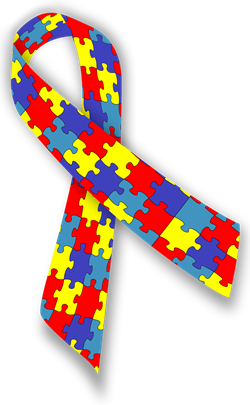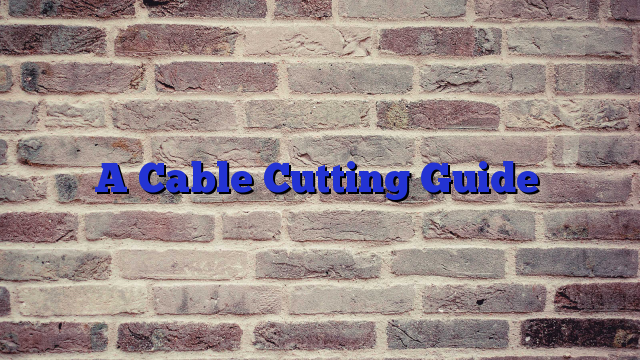 Recently, a tweet crossed my stream lambasting someone for writing an article about all of the benefits kids with Autism get when they were bullied. I couldn’t believe it. Surely, nobody could seriously argue that being bullied actually helped kids. I was sure that the article would be dripping in sarcasm with "benefits" like "stops trying to socialize with anyone so they don’t get hurt" or "learns not to trust anyone ever." Instead, the article actually claimed all sorts of benefits that kids on the spectrum could get by being bullied.
Recently, a tweet crossed my stream lambasting someone for writing an article about all of the benefits kids with Autism get when they were bullied. I couldn’t believe it. Surely, nobody could seriously argue that being bullied actually helped kids. I was sure that the article would be dripping in sarcasm with "benefits" like "stops trying to socialize with anyone so they don’t get hurt" or "learns not to trust anyone ever." Instead, the article actually claimed all sorts of benefits that kids on the spectrum could get by being bullied.
I’m both the parent of a child with Autism and has been bullied and someone with Autism who was bullied growing up. My bullying experience left me scarred for many years. Any insinuation that being bullied is a good thing that strengthens kids hits close to home. Needless to say this article upset me. I know I should treat this article’s author using the classical "Don’t feed the troll" method, but I get the feeling that the author seriously believes her words. Furthermore, I fear that someone without experience with bullying or Autism might believe what she writes to be the truth. Therefore, I’ve decided to post a point by point refutation of her article. I’ll give each way she claims bullying makes kids with Autism stronger, a synopsis of her reasoning, and then an explanation of why she’s wrong. (I’ll note that I’m not going to link to the original article as I don’t want to give it any more traffic than it has already gotten.)
Promoting Autism-Friendly Programs
The author claims that bullying can be the result of misunderstandings about why children with autism soak and act the way that they do. This, she concludes, the bullying is a good thing because it can be used as an opportunity to educate.
There is a grain of truth in here. Bullying can be done out of a lack of understanding. Also, educating students about why a child is acting the way he acts is a good thing. That being said, an act of bullying – even if it is used to begin an education campaign – is NOT a good event. At best, you are trying to take a bad situation and prevent more bad situations from occurring. We wouldn’t say that it’s a good thing that someone came down with an illness because then they can educate others about the affliction.
Team Work
The author claims that a bullying event will cause you to work closely with teachers, aides, counselors, principals, etc. Since this is a good thing, the author says, it means the bullying was good for the child.
Again, the author mistakes a good follow-up from bullying with the bullying itself being good. Working with your child’s school is good whether or not your child has been bullied. Bullying doesn’t make this partnership good. Again, you’re trying to help prevent further bad events in the future. This doesn’t mean that bullying is good.
Autism Awareness Every Month
The author makes the claim that bullying kids with Autism raises awareness of Autism.
Raising awareness of autism (and of bullying) is a good thing, but there are better ways of doing this than via being bullied. The ends don’t justify the means.
Kids Learn Skills
The author claims that dealing with bullies teaches communication (both verbal and nonverbal) as well as "survival skills, civil liberties, and independence."
I couldn’t disagree more. Being bullied will taught me NOT to communicate with others. The more verbal or nonverbal communication, the more ammunition I handed my bullies to use against me. Bullying will just frustrate kids with Autism, not make them feel more comfortable socializing.
Builds Strength
The author’s theory is that bullying builds strength in a child with autism because they grow closer to parents, friends, and teachers.
This is total bull. Bullying doesn’t give a child stronger ties, it weakens ties. It makes children feel inferior, threatened, and like they have no safe place. Bullied kids often feel like they can’t talk to their parents, teachers, or friends about being bullied because they might be seen as weak. Bullying isolates kids, plain and simple.
Furthermore, it isn’t a foregone conclusion that bullied kids receive support from those around them. Perhaps the bully is a popular star quarterback and dealing with the bullying might mean the team does poorly. Maybe the school administrators are in denial about their school having a bullying problem and so don’t want to hear about any incidents. In either situation, the person who is bullied can be shamed and pressured into either staying silent or even into "admitting" that they were the cause of the incidents. When this happens, the bullied child won’t feel closer to people, but even further isolated and alone.
More Friendships
The author claims that discussing the bullying can lead to more people being friends with the bullied child. In addition, the author contests that bullied kids will seek out new friends and new social activities.
Again, the author is wrong. A bullied child will feel isolated from his or her peers, not drawn to new peers. When social interactions – already a situation that makes those with autism nervous – becomes associated with all of the negatives of bullying, a child with autism is more likely to withdraw within himself or herself and not try to make new friends.
Overall Well-Being
The author contests that teachers looking out for bullying can supervise and intervene better.
Like some previous arguments, the author is both right and wrong. Alert teachers can supervise, intervene, and prevent future bullying. However, this being said, this doesn’t mean that bullying can take the credit for the higher rate of intervention. If a rash of muggings caused people to take self defense courses, the muggers wouldn’t get thanks for any benefits that the self defense courses provided.
Healthy Relationships
The author thinks that bullied kids will learn valuable skills that they can apply to sibling rivalry, "stranger danger," or other threats.
My bullying experience led to anything BUT healthy relationships. When I was bullied, I became so paranoid that I thought that anyone laughing was laughing AT me. This didn’t help me deal with confrontation, it taught me to withdraw further into myself to better protect myself. A child with autism who is bullied might also think that – as horrible as they felt when they were bullied – this is how people treat each other. Without intending to be mean, the child might become a bully himself simply because he’s modeling his social behavior off the wrong people.
Increased Life Skills
The author claims that the bullied child will become a better citizen and act nicely towards others.
When I was growing up, my mother has a poem on the refrigerator called Children Learn What They Live. In short, if a child is raised encountering a behavior, they will think of that behavior as normal and emulate it. A child raised being tormented will learn that fear is the norm. Even if the child winds up being kind so that others aren’t bullied, this didn’t excuse the bullying. It’s more a testament to the child’s reaction to the bullying and not something to thank the bullies over.
Self-Esteem
The author contends that bullied children get self-confidence and improve their self esteem.
I don’t know what bullied child (if any) she looked at, but I certainly didn’t learn self esteem from being bullied. On the contrary, I learned that I was nothing but the target for everyone’s abuse, I was powerless to change this, and I should withdraw from the world as much as possible. It was only when I went to college – escaping the bullying I suffered in high school – that I started to learn that I was a good person who could have good friends and could contribute to social situations without people mistreating me.
While it is true that people’s reactions to bullying can lead to positive events, this didn’t mean that bullying is a great thing that should be celebrated. Any positive outcome from reactions to bullying are thanks to the people who help out the child being bullied. The bully and his or her actions are not to be credited with any of this. For as much positive that people can make out of the bad situations that is bullying, much more good would come to pass is there was no bullying in the first place.

 Back in March, I wrote about how we finally cancelled our cable. We marched into our cable company’s office, cable boxes in hand, and told them to cancel our cable TV service. What I didn’t detail was the years long process we went through before we got to this point. If you are wondering whether cutting cable is right for you, following my steps will help you figure it out.
Back in March, I wrote about how we finally cancelled our cable. We marched into our cable company’s office, cable boxes in hand, and told them to cancel our cable TV service. What I didn’t detail was the years long process we went through before we got to this point. If you are wondering whether cutting cable is right for you, following my steps will help you figure it out.
 One of the advantages to living in upstate NY is that, every fall, the apple trees become laden with their wonderfully tasty fruit. It’s an annual tradition of ours to go to an apple orchard and pick our own apples. They but only wind up being less expensive than store bought apples, but the kids have a blast going from tree to tree plucking the fruit themselves. A couple of weeks ago, I took the boys to Indian Ladder Farms. There we picked apples, saw some animals (some of which the boys got to pet), and has a blast. When we got home, I weighed our apple haul: 44.5 pounds.
One of the advantages to living in upstate NY is that, every fall, the apple trees become laden with their wonderfully tasty fruit. It’s an annual tradition of ours to go to an apple orchard and pick our own apples. They but only wind up being less expensive than store bought apples, but the kids have a blast going from tree to tree plucking the fruit themselves. A couple of weeks ago, I took the boys to Indian Ladder Farms. There we picked apples, saw some animals (some of which the boys got to pet), and has a blast. When we got home, I weighed our apple haul: 44.5 pounds.






 Recently, a tweet crossed my stream lambasting someone for writing an article about all of the benefits kids with Autism get when they were bullied. I couldn’t believe it. Surely, nobody could seriously argue that being bullied actually helped kids. I was sure that the article would be dripping in sarcasm with "benefits" like "stops trying to socialize with anyone so they don’t get hurt" or "learns not to trust anyone ever." Instead, the article actually claimed all sorts of benefits that kids on the spectrum could get by being bullied.
Recently, a tweet crossed my stream lambasting someone for writing an article about all of the benefits kids with Autism get when they were bullied. I couldn’t believe it. Surely, nobody could seriously argue that being bullied actually helped kids. I was sure that the article would be dripping in sarcasm with "benefits" like "stops trying to socialize with anyone so they don’t get hurt" or "learns not to trust anyone ever." Instead, the article actually claimed all sorts of benefits that kids on the spectrum could get by being bullied. From a young age, I’ve wanted to design video games. I would take sheet after sheet of paper and fill them with drawings of levels, enemies, descriptions of power ups, and more. I didn’t know how to actually code the games. In addition, I’d often be building on established franchises. I didn’t think Nintendo would want me coding an unauthorized Mario game.
From a young age, I’ve wanted to design video games. I would take sheet after sheet of paper and fill them with drawings of levels, enemies, descriptions of power ups, and more. I didn’t know how to actually code the games. In addition, I’d often be building on established franchises. I didn’t think Nintendo would want me coding an unauthorized Mario game.


